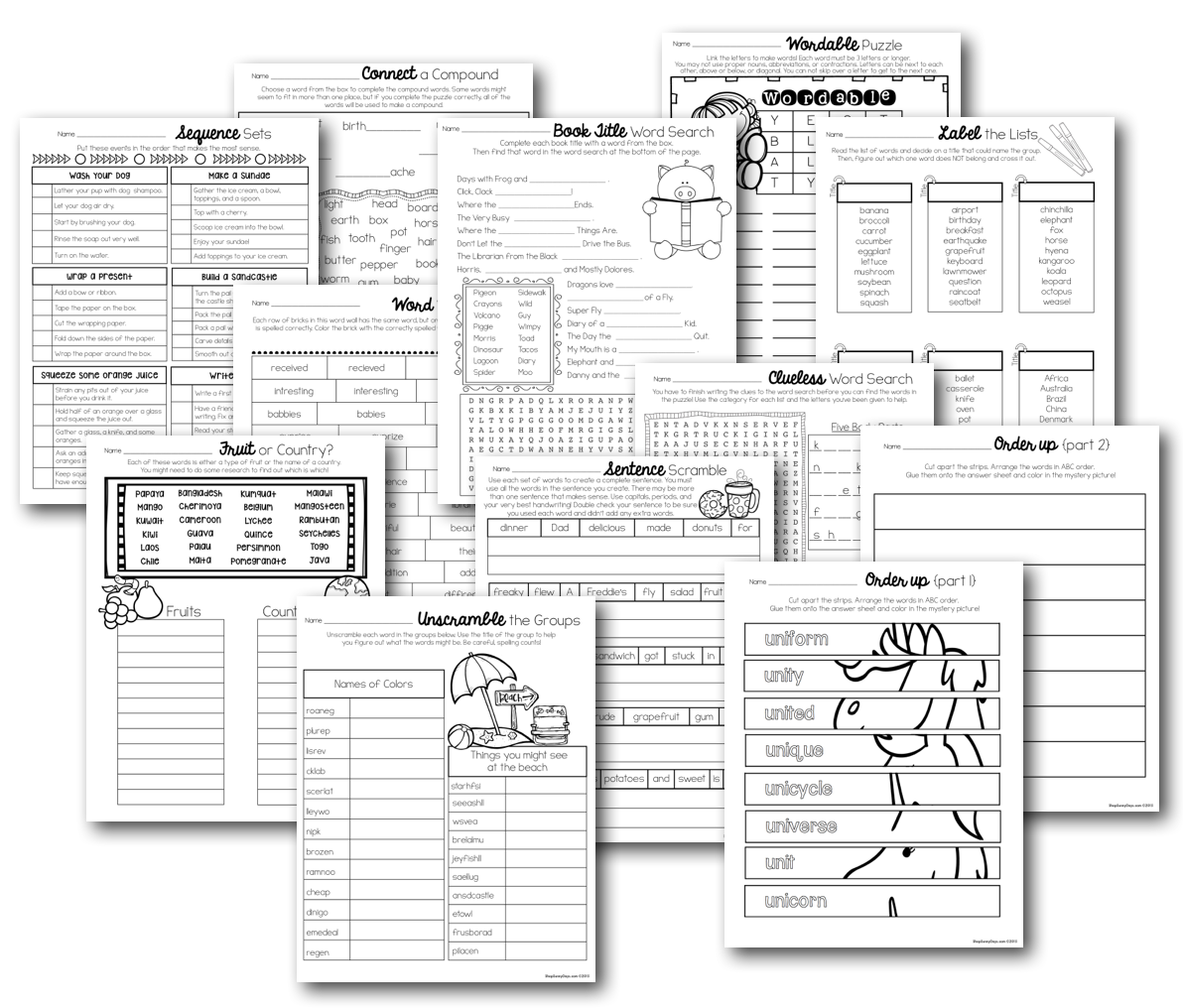
I've been teaching gifted and high achieving students for the past 15 years. In that time, I've come to have a great understanding of what motivates bright minds and what turns them off. I have a solid understanding of what I can expect my young, bright minded students to do independently. Often their enrichment work needs to be done independently because the reality of the classroom is that your high-fliers are not the ones getting your individual attention. In many classrooms, even those taught by some of the most amazing teachers I know, the default for your brightest kids is for them to read a book while you're working with your lower babies who are struggling to read sight words.
Often you'll find that those kids love to read, so you feel ok with that decision. I did too for a long time, but then it started to weigh on my mind that I had these super bright kids who probably read at home all the time and here I am just having them read more. The kids seemed content and they were "busy" while I worked with the kids who needed interventions that I had to provide one-on-one. But something was nagging at me. I knew I had to do something else for my early finishers and enrichment students.
I remember hearing about a project where the kids would research an animal of their choice and determine how much it would cost them to keep and care of that animal as pet. This would require them to use newspaper ads, internet research, interviews with vets or groomers, after which they would prepare a presentation to share with the class. Sounds amazing. Until they need help with just about every step of the way and it turns into a giant headache for you and lots of lost time in the classroom. Trust me. I tried it. It was a great idea in theory, but in practice it needed a lot of refinement. Perhaps older students could do this independently, but not second and third graders.
I decided to come up with much smaller projects that they could tackle. Much, much smaller. I have found that although the kids can use a computer and an iPad to play games and manipulate apps, many of them lack the basic skills necessary to complete a large, complex research project. They need practice with the baby steps to get there. So I created shorter research activities that will give them the foundation to complete those larger projects in the future. In one activity, students research to find out which part of the body a specialist treats. In another, they research the average cost of ordinary objects on the day they were born. In another they have to research some unusual words and determine if it names a fruit or a country. In yet another they research the hedgehog and then make a justification about having one as a class pet. These are short, interesting, independent research projects that the kids navigate by themselves or with a friend.
Along with these shorter research projects, I also like to have on hand some other things to engage my fast finishers. I think I know how these kids feel, because I was one of these kids. I was a super fast finisher. I remember one teacher I had who would ask us to bring her our work when we were done. In my elementary classroom in the early 80's we sat in rows, silently working away. I remember finishing way faster than my peers and then pretending to keep working until some other brave soul walked to the front of the room with their finished work. Then I would follow them up to the teacher's desk. After which I would take out the Judy Blume book I was currently obsessed with and quietly read until it was time to do something else. I was a word nerd. I would have LOVED it if my teacher knew this and handed me a puzzle or a brain teaser. So for those kids who are like me, I created some thing I think they would like.
I was a writer too. From a very early age I would write long rambling stories on any scrap of paper I could find. I was never given much direction for my writing, but I remember my teachers praising me for it. Again, I would have loved it if my teacher provided some direction for my rambling stories. This is exactly what I've tried to do for my students with the writing tasks I've created.
Your high math kids need complex thinking challenges, not just more problems on a page or working with an extra digit to subtract. Both open ended and discrete math challenges are provided in this pack as well.
I've also provided opportunities for art expression, design, personal reflection, history, and science.
The work I've created in this pack is very versatile. Use them to enhance your planned curriculum, differentiate homework, or provide challenging work for higher groups or individual students. Of course, this is not the only thing we need to do for the brightest minds in our charge, but it's a great set of materials to have on hand to give them the challenge they're probably craving. You can check out the pack here on tpt.
P.S. This set of materials is a "sequel" of sorts. I created a first set of 50 Printables years ago which became one of my best selling and highest rated products. You can see the original here.


































